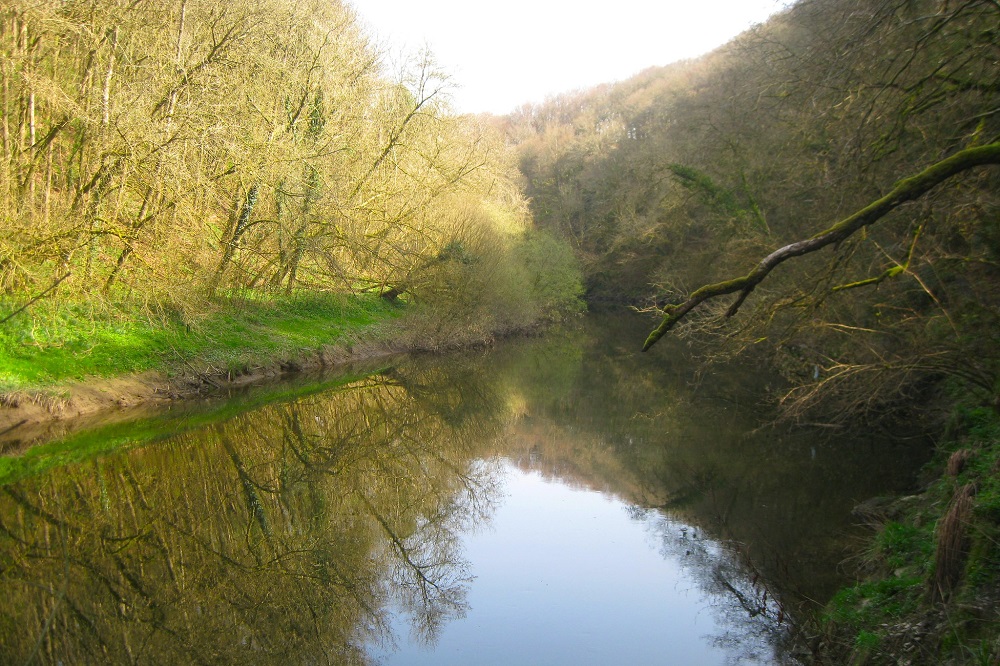Dŵr Cymru slammed for west Wales river pollution

Bruce Sinclair, local democracy reporter
A Ceredigion councillor has hit out at Welsh Water after statistics say some of the county’s rivers are among the most polluted in the entire UK.
A Welsh Liberal Democrat analysis of sewage dumping statistics released by Welsh Water/Dŵr Cymru says it paint a grim picture for west Wales, with Ceredigion, Preseli Pembrokeshire, and eastern Carmarthenshire all being in the top 10 constituencies in the UK for sewage dumping.
Welsh Liberal Democrats say the figures for West Wales show Ceredigion polluted by sewage 3,681 times in 2022, lasting 30,817 hours.
Neighbouring Preseli Pembrokeshire fared even worse, being polluted by sewage 5,003 times in 2022, lasting 45,902 hours, while Carmarthen West and South Pembrokeshire was polluted by sewage 3,563 times in 2022 – lasting 26,132 hours.
In west Wales, the worst area was Carmarthen East and Dinefwr, polluted by sewage 6,756 times in 2022, lasting 57,409 hours.
The River Teifi is also ranked the ninth most sewage polluted in the entire UK with sewage being dumped in the river for 11,801 hours last year, Welsh Liberal Democrats say.
Tragic
Ceredigion Liberal Democrat Leader and Aberaeron and Aberarth councillor Elizabeth Evans said: “It is tragic that Ceredigion has some of the most sewage-filled rivers in the entire UK. This issue is placing human health in danger alongside our wildlife and tourism industry.
“The Labour-Plaid Cymru partnership in Cardiff Bay has failed at every step to take this issue seriously.
“Now they expect the taxpayers to pay to clean up their mess while water company executives have spent years siphoning off money to pay themselves large bonuses.
“These large bonuses should be banned, and the money reinvested into improving infrastructure. Dŵr Cymru is meant to be a non-profit.”
A spokesman for Welsh Water said: “We take our responsibility for protecting the environment seriously but understand the real concerns there are regarding the operation of storm overflows and can assure our customers that this is something we are listening to them about.
“With monitors now on over 99.5 per cent of our overflows, we are able to provide one of the most comprehensive reports on how our storm overflows perform. We are always open with this information by publishing it on our website and report the number of spills to our environmental regulators.
“We also provide real time spill information for key bathing waters to interested bodies, including Surfers Against Sewage and Rivers Trust.
“Our data for 2022 shows that we saw a 12 per cent reduction in the average number of storm releases per storm overflow compared 2021, from 43.5 to 38.3; and a 25 per cent reduction in total spill duration in 2022, from 807512 hrs to 602987.5 hrs
“While there has been a reduction, which in part is due to the investment work we are undertaking to reduce spills, the reduction has also been influenced by the dry weather we saw last year.
“The total removal of combined storm overflows from our system is unaffordable and would take decades and therefore is not an option but what is in our control is the ability to target investment to CSOs [Combined Storm Overflows] which have the biggest environmental impact.
“That is why we are investing significantly to improve CSOs with £140m being invested between 2020-2025 and a further £420m planned from 2025 to 2030.”
Improvements
The spokesman added: “Our investment to date in our wastewater system has delivered real improvements and helped ensure Wales has over a third of the UKs Blue Flag beaches while only having 15 per cent of the coastline and that 40 per cent of our rivers and waterbodies meet good ecological status compared to 16 per cent in England.
“However, we recognise that with environmental legislation tightening and customer expectations changing, more needs to be done to protect bathing and river water quality.
“Equally as important as tackling CSO’s is tackling phosphorous pollution and we are delivering a comprehensive programme of upgrades to our wastewater treatment works that will remove 90 per cent of our phosphorous discharges by 2030.”
Support our Nation today
For the price of a cup of coffee a month you can help us create an independent, not-for-profit, national news service for the people of Wales, by the people of Wales.






If we are not careful the wool is going to fall from our eyes and we will have to face it, the old place is in a bit of a mess…
The situation in England is terrible with 84% of rivers not being at a good or better standard for ecological status. Our situation may be better with 60% not reaching this standard, but it is still not good enough and we should face the fact that when WW makes this comparison to what is a ‘dirty neighbour water wise’ it is not good enough.
We should be looking at those countries that perform far better than us and use their outcomes as ambitious targets to change our game. The current situation is just not acceptable.
This is what happens when you give data to a politician! While storm overflows into rivers are a terrible state of affairs, look at the public flushing wet wipes, sanitary waste and God knows what else down their loo! DCWW while far from angelic, monitor all their overflows, rather than a small selection as done by other companies, so of course they have higher stats! It’s time the public took responsibility for their own sh*t.